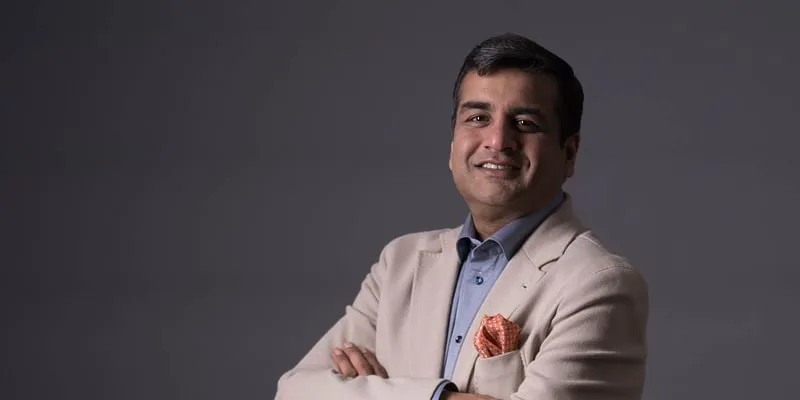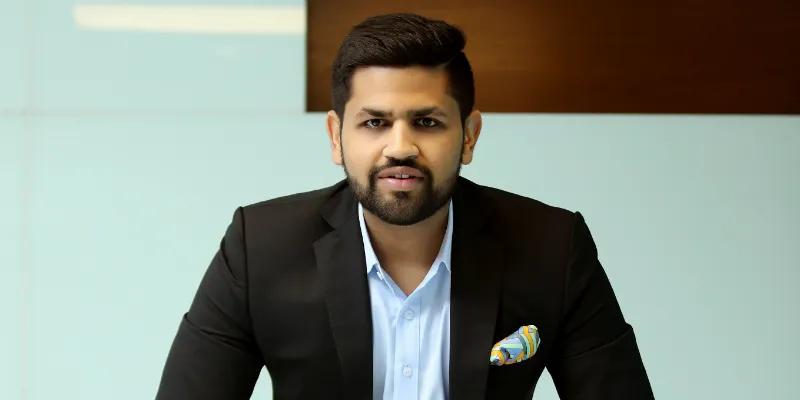5 famous Made in India brands we thought were foreign, but are not
Here’s a list of five Made in India brands we thought were international but are not.
What’s in a brand name? In one word – trust.
A branded product offers customers a sense of trust. Users feel a sense of assurance that the price they are paying for a product is worth it.
SMBStory has compiled a list of Made in India brands that look and sound international, but are absolutely homegrown.
Woodland

Harkirat Singh, Managing Director, Woodland
This might come as a bit of a surprise but , a highly sought-after brand for a lot of millennials, actually has Indian roots.
Aero Group, the parent company of Woodland, was founded by Avatar Singh in Quebec, Canada, in the 1980s. At the time, Aero Group manufactured winter boots for Canada and Russia.
In an interaction with SMBStory, Avatar’s son Harkirat Singh, who is now the Managing Director of Woodland, says,
“My father had been into the shoe business since the 1970s. We had tanneries and factories where we used to make shoes to cater to the USSR market but at that time we didn’t have a brand. And it was in the 1980s when we launched the company and entered the market in a flourished way.”
Aero Group’s business was at its peak until the 1990s when the Russian market went down with the dissolution of the Soviet Union.
“It was a tough phase for us as our major market share was in Russia but its condition was deteriorating. Though we were present in Europe and Canada, we needed to hunt for another growing market,” Harkirat recalls.
In 1992, Avatar and Harkirat decided to enter India after seeing the developing market condition and the opening up of exclusive retails outlets and mall culture. Under Aero Group, the duo then launched the brand Woodland by introducing one of the first hand-stitched leather shoes in the Indian market, which became widely popular in the country.
The company launched its first two Exclusive Brand Outlets (EBOs) in Delhi’s Connaught Place and South Extension. Today, Woodland has over 600 EBOs across the country along with shelf space in more than 5,500 Multi-Brand Outlets (MBOs). According to Harkirat, it has a turnover of Rs 1,250 crore as of FY 19-20.
Hidesign

Dilip Kapur, Founder, Hidesign
After completing his studies and returning to Puducherry, Dilip started making leather bags as a hobby. His time at the factory taught him all he needed to know about making leather bags. Dilip started sourcing leather from Chennai and started making hand-crafted leather bags in Auroville.
“The short stint at the leather factory made leather my lifelong passion. However, designing and making leather bags did not make me a businessman. I didn’t even know how to read a profit and loss statement at that point of time,” he tells SMBStory.
But he wasn’t about to let this dampen his entrepreneurial spirit. Dilip gathered Rs 25,000, hired one cobbler, and started a two-person artisan workshop named .
“Hidesign was born out of the need to be different from the uniform and synthetic flatness of leather bags in the mass market. It was almost like making strong my aversion towards painted leathers that didn’t look natural at all,” he says.
In 1984, Hidesign entered its first departmental store, John Lewis, in the UK, where its entire range was stocked. Cracking John Lewis signified the brand’s shift from an edgy, alternative brand to a commercial and mainstream one.
By 1988, Hidesign had ventured into garments, with leather jackets and long pants. The UK market couldn’t get enough of Dilip’s leather bags. Hidesign was soon present across 700 stores in London.
“In 1990, we set up a factory in Puducherry, but were still not ready to enter the Indian market. It took another nine years to finally open the first few Hidesign stores in India,” he says.
Over the next few years, Dilip opened another production unit in Puducherry, and one in Sikkim. He also set up a tannery in Chennai.
Dilip’s company now clocks Rs 170 crore gross annual revenue (as of FY20) and has 1,400 employees. It has evolved from a leather goods maker into a lifestyle brand with presence in exclusive stores, airport stores, shop-in-shops, multi-brand outlets, and ecommerce platforms. It claims presence in 102 exclusive brand outlets and 112 large format departmental stores.
Hidesign’s product portfolio comprises ladies’ bags, men’s bags, wallets, belts, shoes, sunglasses, luggage, and jackets. The ladies’ bags and men’s bags are its top sellers.
Colorbar

Samir Modi, Executive Director at Modi Enterprises
Colorbar, which is one of the leading beauty brands in India is a Delhi-based brand falling under the three generations-old family business, Modi Enterprises.
The philosophy of is to be gender-neutral and celebrate the diversity of all those who come in contact with it. The brand’s cruelty-free product range delivers this.
“We believe that change is the only constant and it is this way of thinking that has made us the third largest beauty brand in India in a very short span of time,” says Samir Modi, Managing Director of Modi Enterprises.
The journey of Modi Enterprises dates back to 1932 when Gujarmal Modi (Samir’s grandfather) ventured into making vanaspati – a type of vegetable cooking oil. However, in an effort to jump-start the domestic production of sugar, the then government announced a sharp increase in import duties. So he abandoned the vanaspati idea in favour of a sugar mill.
Experiencing the struggles and passing through the tough times of World War first and second, he set up 27 industries between 1933 and 1972, as well as several charitable trusts, hospitals, colleges and schools to help people.
Colorbar is a part of Modi Enterprises where the brand is produced and packaged in France, Germany, Italy, Korea and the United States of America conforming to the US, EU, UK and Japan FDA standards, and have ISO certification.
Colorbar targets the premium prestige segment, i.e. the vibrant, irreverent, and fashionable people looking for affordable luxury. It has more than 100 exclusive retail outlets located in prime locations.
It is also available in over 1,200 beauty outlets, shops and cosmetic stores. It has a strong relationship with , and . Colorbar’s competitors are Mac, Bobbi Brown and Kiko.
Monte Carlo

Rishabh Oswal, Executive Director, Monte Carlo
If you live in North or East India, you probably own a Monte Carlo jacket, sweater, or cardigan. If not, you would have seen its outlets or winter wear products when you were out shopping. Its winter wear products are sold at thousands of stores in states such as Punjab, Uttar Pradesh, Bihar, Haryana, and more.
But did you know that was India’s first organised fashion apparel brand?
Its legacy and ancestry, which traces back to post-Independent India, is not known to many. Its incredible story started from Ludhiana, Punjab, a city that boasts of the vibrant textile industry.
Monte Carlo’s history in Ludhiana started with Oswal Woolen Mills, which was set up post-Independence in 1949. The mill started bringing the wool industry stakeholders together to form a more organised approach to manufacturing and selling. It eventually became one of the largest producers of woollen yarns in India.
In 1984, Monte Carlo was launched as a brand under Oswal Woolen Mills, and held the prestigious title of being one of the first organised fashion apparel brands in India.
“We were already in the business of woolen yarns and were also manufacturing products for various industries. It was then that we understood the need and demand for making the industry organised, and gave India its very first readymade apparel brand,” says Rishabh Oswal, Executive Director, Monte Carlo.
Several years after Monte Carlo was launched, it slowly became the all-season brand that we all know. “The launch was a significant step in the evolution of the branded garment industry in India. Since then, we have been catering to the ever-expanding demands of the clothing and fashion industry,” Rishabh adds.
Monte Carlo has also been a clothing partner for the blockbuster Bollywood films Barfi, Mary Kom, Bhaag Milka Bhaag, and Student of the Year.
Da Milano

Sahil Malik, Founder, Da Milano
After graduating from NIFT, Delhi, Sahil Malik decided to pursue a marketing course in London. There, he was fascinated by premium handbag stores — a sight alien in India at the time.
“India didn’t have any premium women handbags brand stores and consumers had to rely on international companies to meet their desire of having a luxury handbag,” Sahil tells SMBStory.
The third-generation entrepreneur always had a keen interest in fashion and accessories. So, he decided to start a luxury handbag brand to cater to niche customers in India and launched in 2000.
Today, Da Milano has 75 stores including 15 airport stores and clocked a turnover of Rs 143 crore in FY 19-20. Sahil says while his stores are located across India, his customers are mainly from north and east India.
In 2013, Da Milano entered international markets and is currently present in Kathmandu, Qatar, Bahrain, and Dubai. Last year, it also opened a store in the Dubai Mall.
Edited by Affirunisa Kankudti









